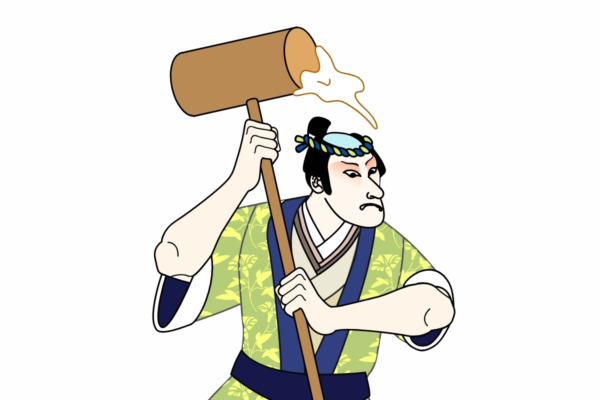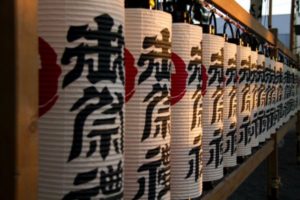Good-Bye is a Japanese Play in London that stands as a testament to Dazai’s literary prowess and his ability to capture the complexities of human emotions and relationships. As we delve into the intricacies of Dazai’s legacy as reflected in Good-Bye, we learn to understand better and appreciate the themes, characters, and the author’s own life experiences that have contributed to the enduring impact of this influential work.
The literary world is filled with works that have left a lasting mark on readers, and Osamu Dazai’s Goodbye is undoubtedly one such work, even if the novel remains unfinished. Dazai is a prolific Japanese author of the 20th century. He is famous for his very human approach to storytelling.
Knowing Osamu Dazai

Osamu Dazai, born Shuji Tsushima, experienced a tumultuous and often tragic life, undoubtedly influencing his writing. His struggles with mental health, addiction, and personal relationships are reflected in the themes and characters of his literary works, including Good-Bye.
He is also known for writing The Setting Sun (Shayo) and No Longer Human (Ningen Shikkaku), his most popular works considered modern-day classics. Dazai’s ability to infuse his own experiences into his writing gave unparalleled depth and authenticity to his storytelling. Morevover garnering him a dedicated readership both in Japan and internationally.
Understanding the Themes in Good-Bye
Good-Bye is a bittersweet exploration of human frailty, existential angst, and the fleeting nature of human connections. The work delves into the lives of its characters with a raw and sincere gaze, laying bare their innermost struggles and desires. Themes of alienation, disillusionment, and the search for meaning run through the narrative, inviting readers to contemplate the universal aspects of what it truly means to be human.

Dazai’s portrayal in the Japanese Play in London of the character’s emotional turmoil and their attempts to find solace in a world filled with uncertainty resonates deeply with readers, proving the work’s status as a timeless masterpiece. So the richly drawn characters that envelope Dazai’s narrative are central to the enduring impact of Good-Bye. From the enigmatic and introspective protagonist to the supporting cast that mirrors the complexities of human relationships. Each character is a representative of the human experience.
Dazai’s masterful character development allows readers to empathize with the struggles and triumphs of the characters. Therefore forging a profound emotional connection that transcends the boundaries of time and culture. By exploring the character’s inner worlds, Dazai invites readers to confront their vulnerabilities and aspirations.
Good-Bye also had a close connection to the context of Japan’s society during its time of release. Moreover the socio-political environment in which Dazai grew up influenced the narrative of Good-Bye. Societal issues, economic reconstruction, and a collective experience with the traumas of war characterized the post-war era in Japan. Dazai’s observations of human living amidst this backdrop of societal change give Good-Bye its timeless relevance, allowing readers to contemplate the enduring nature of human struggles and aspirations across temporal and cultural boundaries.

Cultural and Historical Context
Good-Bye also had a close connection to the context of Japan’s society during its time of release. The socio-political environment in which Dazai grew up influenced the narrative of Good-Bye. Societal issues, economic reconstruction, and a collective experience with the traumas of war characterized the post-war era in Japan. Dazai’s observations of human living amidst this backdrop of societal change give Good-Bye a Japanese Play in London its timeless relevance, allowing readers to contemplate the enduring nature of human struggles and aspirations across temporal and cultural boundaries.
Critical Reception and Adaptation
The critical reception of Good-Bye has been as varied as the work itself. Scholars and literary critics have offered multifaceted interpretations of Dazai’s novel. It engages with the thematic, stylistic, and philosophical dimensions of the work. Thus from psychoanalytic readings that probe the depths of the characters’ psyches to sociopolitical analyses that situate the work within the broader context of post-war Japan, the scholarly discourse surrounding Good-Bye reflects the work’s enduring capacity to provoke contemplation and debate.

By leaving the novel unfinished, the author allows artists to create their adaptations to the work. So this makes every modification of the novel unique. Good-Bye has been adapted to various mediums, from TV shows to mangas, proving the timeless legacy of Osamu Dazai’s works. Above all the theatre scene has even adapted it, translating the novel onto the stage through experimental theatre and acting. Dazai’s stories have intrigued the minds of many readers, directors, actors, and writers, providing an avenue for creative minds to finish what he started.
The Theatrics of Good-Bye
Highlighting the theatrical adaptation of Good-Bye, Osamu Dazai inspires many theatre groups to pursue his works and relive them on stage. Chiten Theatre Company, one of Japan’s foremost experimental theatre companies, reenacts the novel through their performances on stage. The production’s environment, set in a bar with live music by the Japanese rock band Kukagendai. So intricately translates the themes of suicide, loss, and identity. Chiten Theatre Company highlights the act of drunkenness to address the struggles of Japanese identity further. Same as in the novel itself.

Motoi Miura, is the director of the play and one of the best Japanese directors of the decades besides the likes of Kinoyu Tanaka and others. He decides to complete the story by using fragments of Dazai’s later works. To emphasize the struggle to maintain the traditional Japanese identity while accepting the globalization and Americanisation of modern society. The play reflects on the thought processes of contemporary Japan through the literary legacy of Osamu Dazai.
Good-Bye Booking Details
Good-Bye stands as a testament to Osamu Dazai’s enduring legacy as a literary inspiration whose insights into humanity continue to resonate with readers across generations. While Good-Bye transcends the boundaries of time and culture, encouraging readers to confront the complexities of human existence with empathy and introspection. So as we continue to explore Dazai’s legacy, Good-Bye remains an unfinished farewell that calls us to grapple with the enigmas of life, love, and the enduring quest for human meaning.

Chiten Theatre Company proudly presents GOOD-BYE at The Coronet Theatre, Notting Hill, London. Shows will run from March 5 to March 9, with tickets starting at £20. Therefore witness the legacy of Osamu Dasai on stage as GOOD-BYE a Japanese Play in London, directed by Motoi Miura, artistically presents themes of loss and identity. Tickets can be purchased here.















































